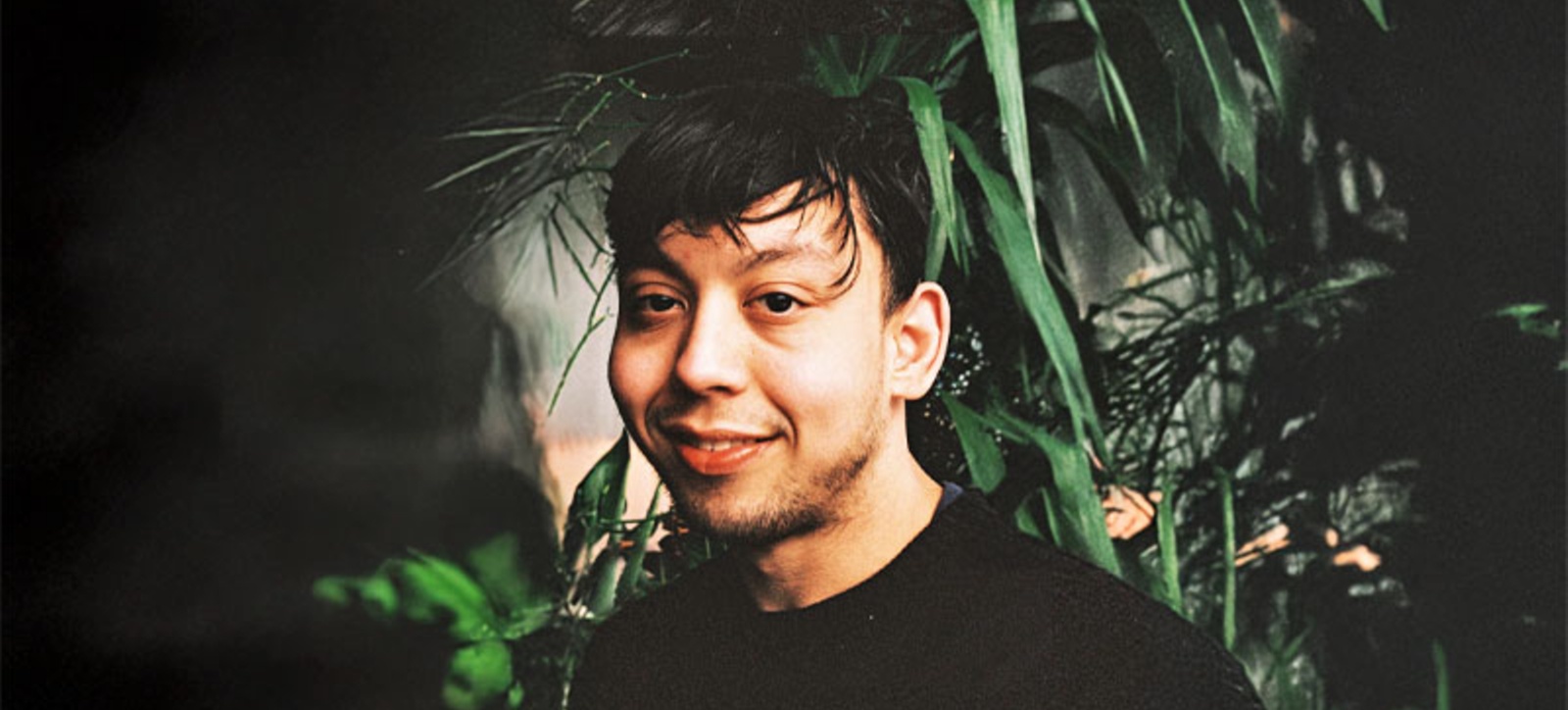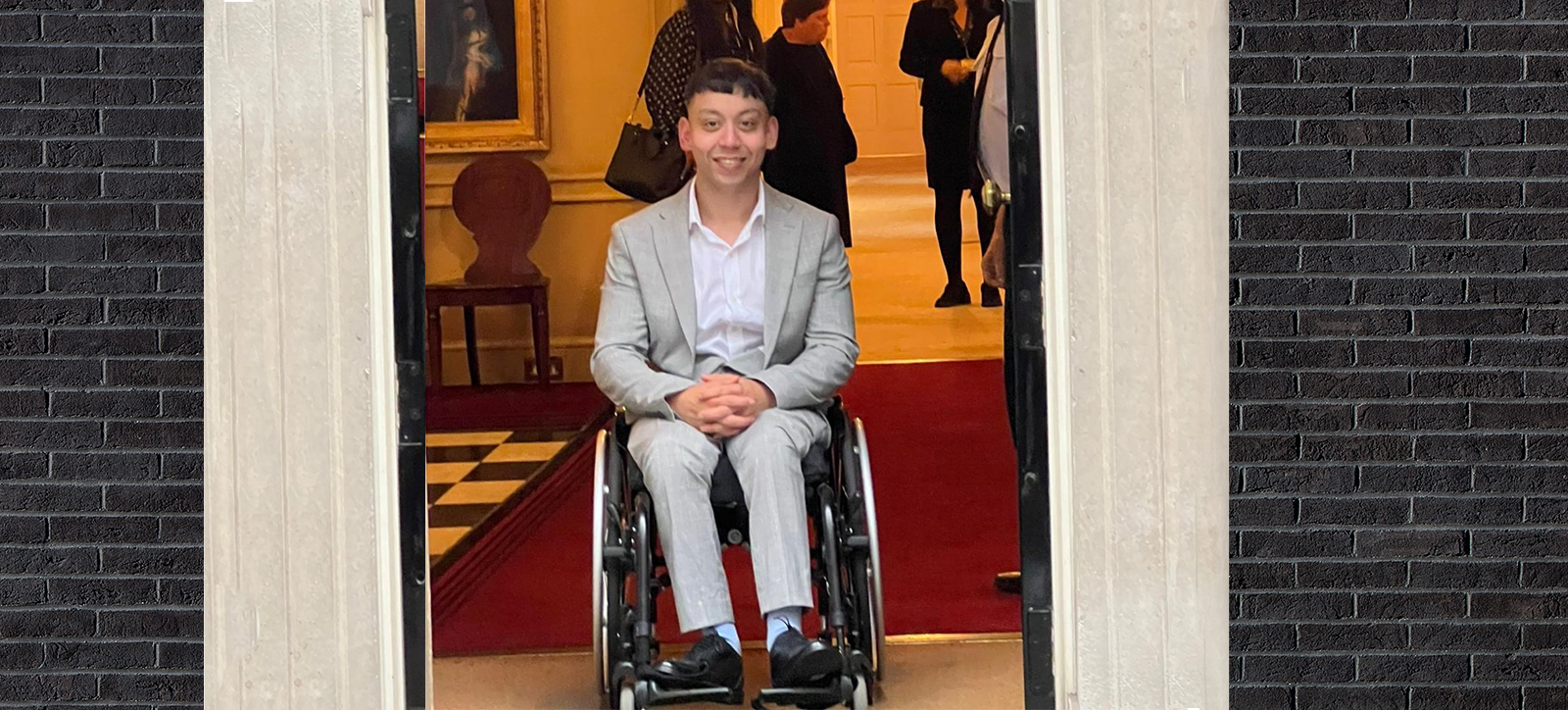
Work in progress: Sami warns British industry has a long way to go to become truly inclusive
A BBC audience of 7.5 million watched Carlos Alcaraz retain his Wimbledon crown with a sizzling final serve last summer.
Alfie Hewett’s powerful backhand to win the men’s wheelchair singles earlier that day drew less attention. Just 600,000 viewers saw the 26-year-old Brit lift the trophy.
It is the “England win you probably won’t have heard about,” noted Sami Dar on LinkedIn as he lamented the lack of coverage in the British media as ‘societal bias’.
Sami, an occasional wheelchair tennis player and co-founder of an initiative to help disabled students find work placements, has been fighting against that bias all his life.
A brain injury at birth left him with cerebral palsy and he relies on a wheelchair. His early childhood was a succession of medical assessments and specialised educational interventions.
Looking back, he remembers being placed in a special-needs unit. “I was six or seven, being tested on concepts far too basic for a seven-year-old in school, and reading Harry Potter and the Goblet of Fire at home.”
Sami defied expectations to win a place at his local grammar school in Slough and graduate from Warwick Business School (WBS) in 2021 with a BSc in Management.
But when he began applying for work placements in his final year at WBS, he was continually passed over for other candidates.
Helping marginalised disabled workers
“My own lived experience is reinforced by industry data, with employment rates for the disabled population being 30 per cent lower than the rest of the British workforce,” Sami says.
So, when he did break into the corporate world with global auditing firm Mazars a few months after graduating, he wasn’t going to rest on his laurels.
He had seen the change that was needed, and was determined to make it happen.
Sami found an ally in Jonathan Sorrell of asset management firm Capstone, who had co-founded 10,000 Black Interns two years earlier to tackle the under-representation of Black talent in industry.
Recognising the promising idea that Sami had for a new non-profit initiative, Jonathan joined him in soft-launching 10,000 Able Interns.
The initiative aimed to gain blue-chip internships for disabled students. Ten prestigious companies signed up to a pilot scheme during that summer of 2022, offering paid internships of 8–10 weeks.
Two years on and Able Interns, part of the organisation now called the 10,000 Interns Foundation, has found professional work placements for 300 students with disabilities at some of the world’s best companies.
One student with paraplegia secured a place at a leading investment management firm.
“He was halfway through his degree when he sustained severe injuries in a diving accident, and he just didn’t know what to do after that,” says Sami.
The internship helped the student to turn things around, becoming not only a life-changing experience for him, but also, in the words of the company, “an invaluable experience” for them.
“They described him as an outstanding candidate.”

Sami is still heavily involved in Able Interns and plans to employ technology more effectively in the charity’s processes, but he has embraced a more ambassadorial role of late.
This has taken him on public-speaking engagements to spread the word about inclusion among corporate institutions and has increased his community involvement.
One of these community events was a sports day for disabled children at Lord’s Cricket Ground, reflecting his own strong interest in sport.
“The key aim of this event was to get disabled and non-disabled people playing sport together and, by doing so, integrating more disabled young people into the sporting world,” Sami says.
Closing the disability employment gap
The 10,000 Interns Foundation has strong ties to the sporting world, with their last awards ceremony being held in the immaculate Diamond Club, within the Emirates Stadium.
The foundation’s CEO, Rebecca Ajulu-Bushell, is an ex-athlete herself, and the first Black woman to swim for Great Britain.
Meanwhile Sami has joined Premier League club Brentford’s newly formed Equality, Diversity, and Inclusion Advisory Group. He advises the club on disability and intersectionality in football.
HIs work has led to recognition from the Shaw Trust, which named Sami as one of the most influential disabled people in the UK in its Disability Power 100 List for 2024.
The List recognises change makers who have championed diversity and inclusion across all walks of life – from business and politics to fashion, sport, and the arts.
However, Sami has no intention of easing up. “True, there are small personal victories like the recognition from the Shaw Trust. They are nice moments, but they are just moments,” he says.
“You soon get back to reality and back to work. I see my own journey as a work in progress.
“And, in the grand scheme of things, much still needs to be done to achieve proper equality and inclusion for disabled people.
“You only have to look at Hewett’s prize money at Wimbledon, which was £65,000 – only £5,000 more than the able-bodied athletes who lost the first round of their singles tournaments.
“The disability employment gap also remains huge. One in four entrepreneurs in the UK is disabled, which tells a story of marginalised talent existing outside the mainstream.
“I do think attitudes towards disabled talent are shifting but there is still a way to go before British industry cultivates a truly inclusive environment.”
Find out about more of our Change Makers at Warwick Business School.




 X
X Facebook
Facebook LinkedIn
LinkedIn YouTube
YouTube Instagram
Instagram Tiktok
Tiktok